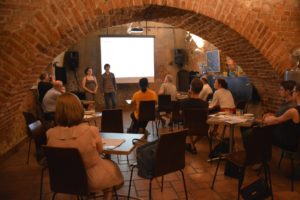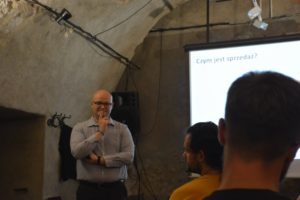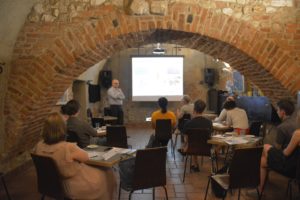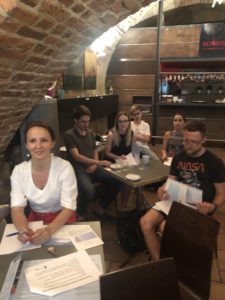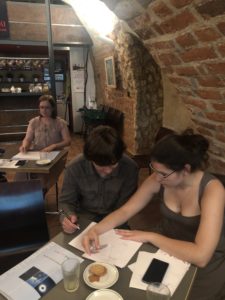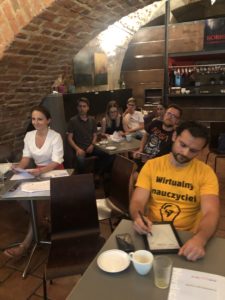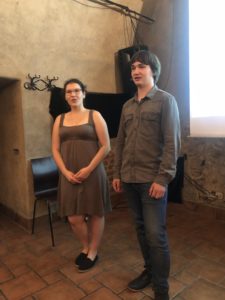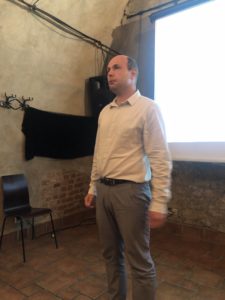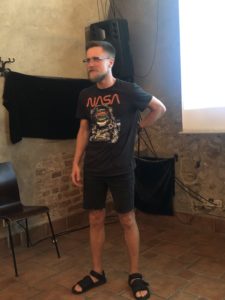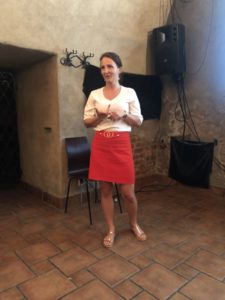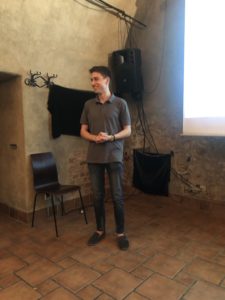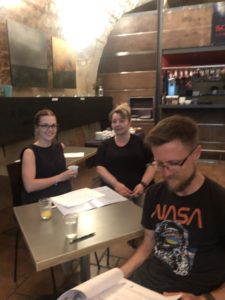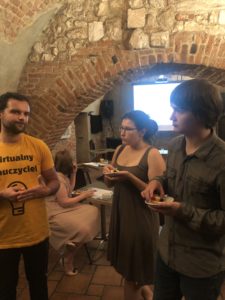SPCleantech organized on 26.06.2019 as Pre-Acceleration Point as part of the “Małopolska – Here technology becomes business” workshop for Start-ups “Find the client first.”
The project is implemented with the financial support of the Małopolska Voivodship.
The workshop was coached by Janusz Kahl, CEO in SPCleantech and mentor Konrad Szczypczyk – business psychologist (JHabitat).
“The purpose of the start-up is to find out how to create the right solution – something that customers will need and what they want to pay for – as soon as possible” – Eric Ries, “If you’ve invented something new, but you do not have an effective way of selling this something, then you have a bad business – no matter how good your product is. “- Peter Thiel. You may think that you have a great idea or innovation, but if you want to start a business, it does not matter what you think. What matters is what the client thinks.
During this workshop, our mentors presented new customer-oriented model and raised topics such as:
- various sales models
- the role of head of sales
- sales channels and intermediaries – their role
- diagnosis of customer needs and customer satisfaction
- building the direct sales team
- policy for various types of products and target groups, pricing models (eg success fee, subscription, or unit price)
- building customer relationships and building long-lasting contacts
- structure and appearance of the commercial offer – what and how we communicate to clients.
During the second workshop we also discussed the topic “How do I get funds to finance my business?”. Entrepreneurs focus on their solutions, customers or the market. The investor thinks about all solutions available on the market and all potential customer segments. Getting information about how an investor thinks will teach you how to think in a broader perspective. More importantly, it will teach you what the investors are looking for in the companies in which they invest and will increase your chances of getting financing.
“If you present the theory and plan without any data and you are one of 1000, it will be much, much more difficult to obtain funds” – Mark Andreessen.
Topics:
- to get financing, entrepreneurs have to learn to think like investors
- investors are most interested in Four M: Management Team, Momentum, Market Opportunity, Money (management team, market opportunities, momentum, money)
- test the start-up in practice before starting activities
- simply analyze your industry, market and team
- Start-ups can get financing in 4 ways: profits, debt, shares and donation
- business angels and venture capital funds investing in start-ups expect a 10-fold return on investment
- Venture capital funds can help start-ups on various stages, in exchange for shares



